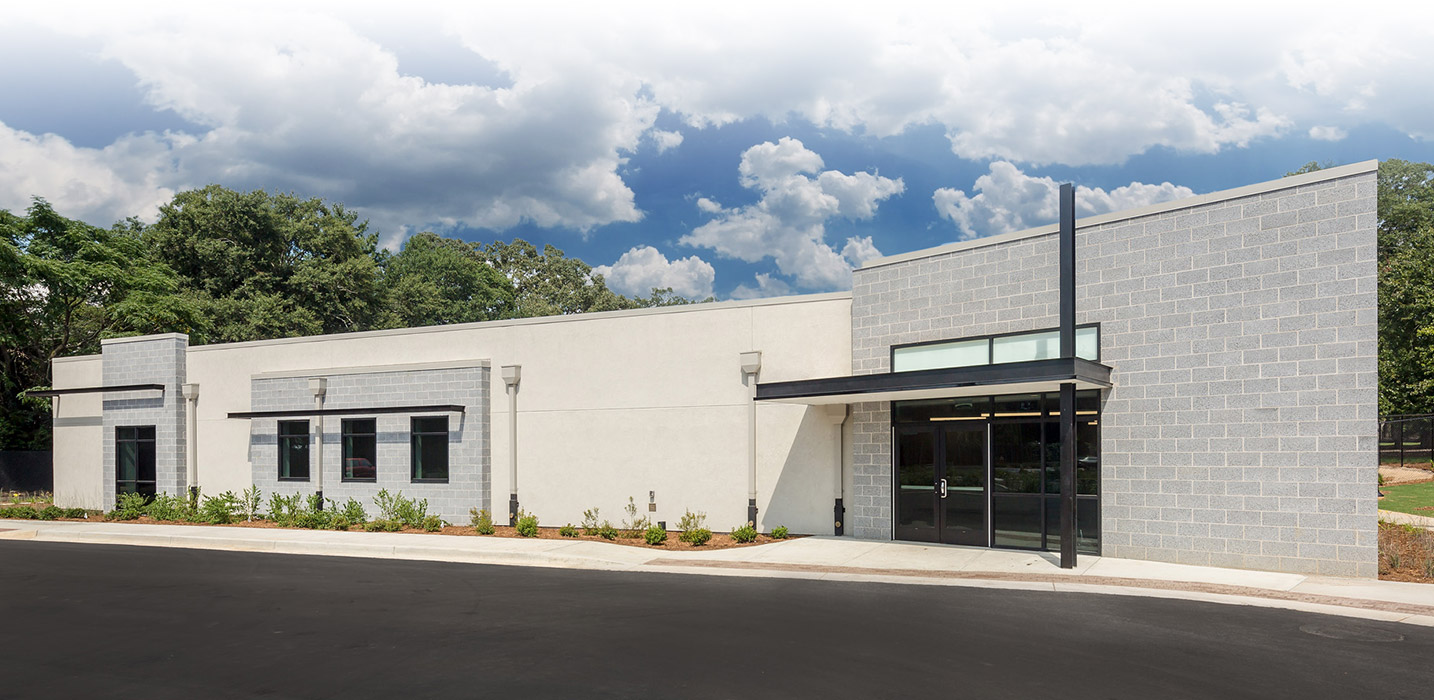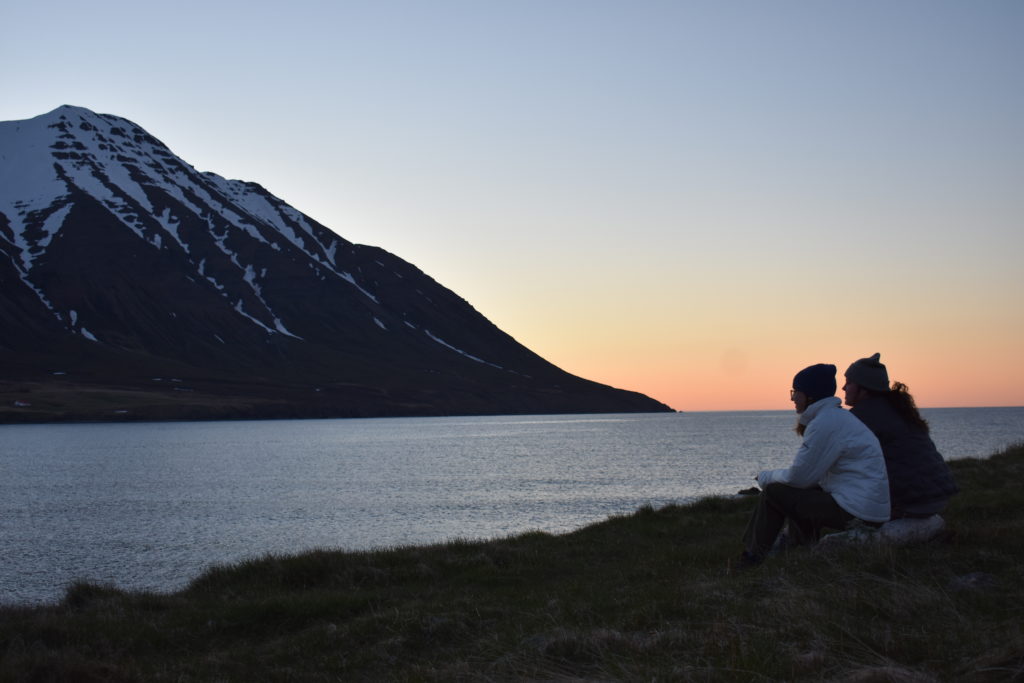
One thing that the University of Georgia’s Institute for Disaster Management (IDM) stresses is giving students the opportunity to learn by doing. For two weeks this past May and June, two graduate students working with assistant professor Dr. Michelle Ritchie took an unexpected opportunity to deepen their research skillsets conducting fieldwork in Iceland.
Disaster management students have long been encouraged to engage and participate in research and outreach projects going on at the Institute. These projects have ranged from developing all hazards protocols for long-term care facilities, helping healthcare systems in the Southeast prepare for emergencies, and even facilitating Ebola response training.
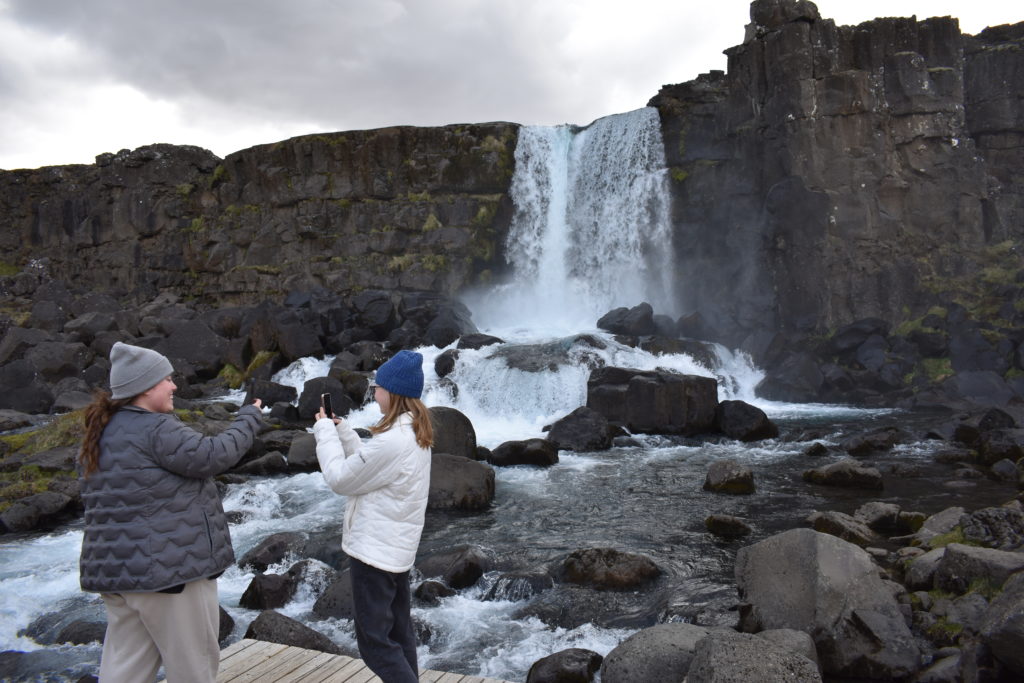
When Dr. Ritchie first discussed her field visit to Iceland with graduate research assistants Kate Foral and Sloane Sengson, the purpose of her research immediately interested Foral and Sengson. The work Dr. Ritchie had planned followed her dissertation research about the processes that encourage households to adapt to rapid environmental change. The goal is to better understand how people value and relate to the natural environment where they live.
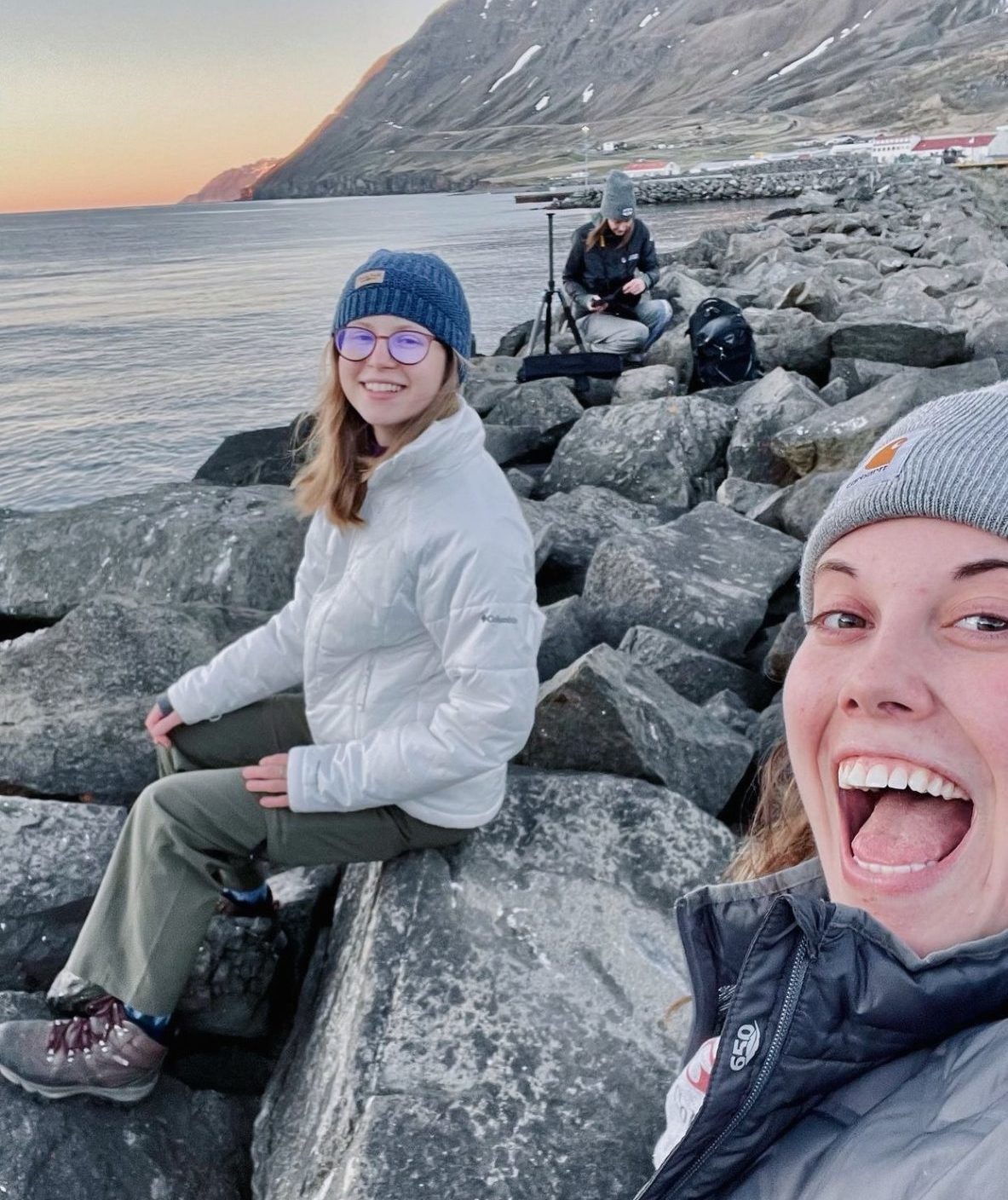
After hearing about the research, Dr. Ritchie said that Foral and Sengson asked half-jokingly, “Can we join?”
“I paused, and my heart jumped because this was the same question that I had asked my undergraduate professors heading into the field nearly a decade ago,” said Dr. Ritchie. “Their welcoming ‘yes’ launched me into the career path that led to UGA and the Institute for Disaster Management.”
That day the group bought tickets.
Dr. Ritchie, Foral, and Sengson spent their first few days in Iceland’s capital Reykjavik, preparing to travel to the study area in North Iceland. Their study area encompassed roughly 1,650 square miles, and the team spent a lot of time driving to speak with residents from every town. Each interview was conducted in a unique location, from cultural centers and restaurants to fishing piers and beaches.
They asked people about their experience with hazards and climate change impacts in the area, gauging their sense of place and risk perception. They also asked them about their visions for the future. Dr. Ritchie said, “the most challenging aspect of the recruitment process was reassuring potential participants that what they had to say about their lived experience in place was meaningful and important for the research.”
This was Dr. Ritchie’s fourth trip to Iceland and she says that the impacts of climate change were stark.
“The environmental changes that took hold over only the past 10 years were all too visible and dramatic. Glaciers big and small had receded or entirely gone, glacial lakes lost their large icebergs, landslides dotted the mountainsides, and biting midges were out in force,” she said. “As a research team, we spent a lot of time talking about these impacts, the interviews we had conducted, and what the future holds. All the while we drove across the highlands, through lava fields, along coastal mountain roads, and over glacial moraines.”
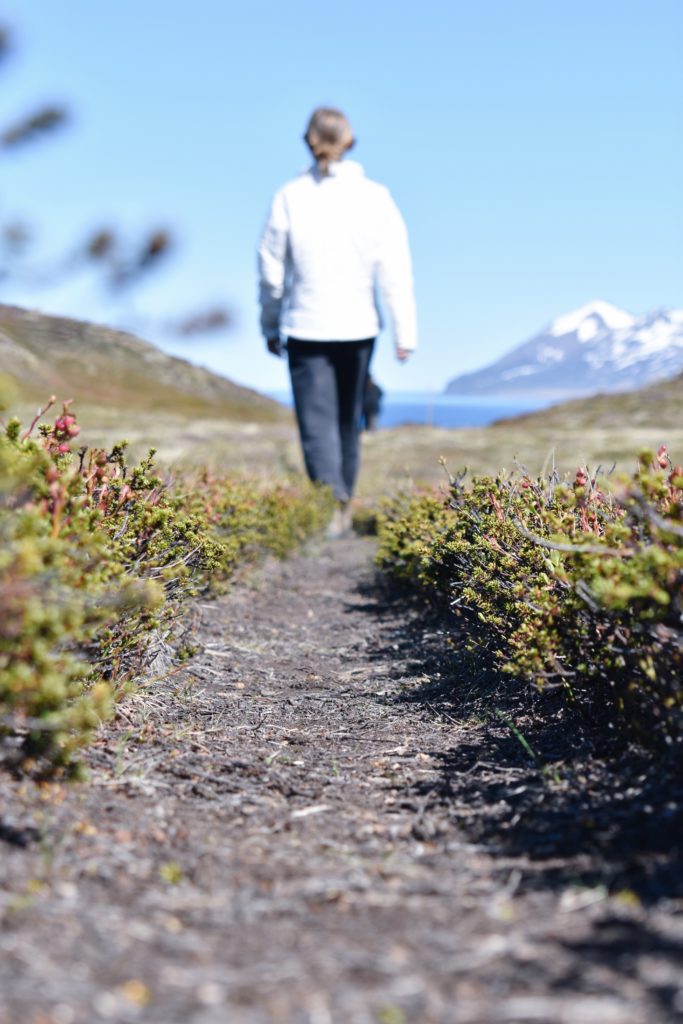 Kate Foral is pursuing a Master of Public Health in environmental health. She is interested in the interactions between humans and the environment, with a specific focus on climate change adaptation, ecosystem services, citizen science, and cave ecosystems. As an undergraduate student, she was a Udall Scholar and has given a Ted Talk on how participation in environmental research can create global change. In her words, her experience in Iceland gave her more clarity about her work and her place in the world:
Kate Foral is pursuing a Master of Public Health in environmental health. She is interested in the interactions between humans and the environment, with a specific focus on climate change adaptation, ecosystem services, citizen science, and cave ecosystems. As an undergraduate student, she was a Udall Scholar and has given a Ted Talk on how participation in environmental research can create global change. In her words, her experience in Iceland gave her more clarity about her work and her place in the world:
“When we bought plane tickets to Iceland on the same day this trip appeared on my radar, I had no idea the adventure that was in store. From geysers, glaciers, and geothermal hot pools to black sand beaches, powerful waterfalls, and tectonic plate boundaries, I have never been more in awe of the earth’s natural beauty and raw power. Through this experience, I learned how to design a social science research study and how to conduct place-based interviews. I gained confidence in approaching strangers and exploring new places independently. I arrived back home refreshed and ready to write my final paper for my graduate degree about how place attachment might influence land management preference. I also arrived home with more clarity about my role in the natural world. I am grateful that I was able to experience this incredible country and that I was able to share this experience with Dr. Ritchie and Sloane.”
Sloane Sengson is pursuing a Master of Public Health degree concentrating in disaster management. Her research interests include emergency preparedness and disaster management, disability inclusion, sustainability and climate science, sexual and reproductive health, mental health, and clinical research. She was a 2021-22 Health Equity Fellow and a College of Public Health undergraduate ambassador. She says the trip left her recommitted to serve communities with her knowledge and training:
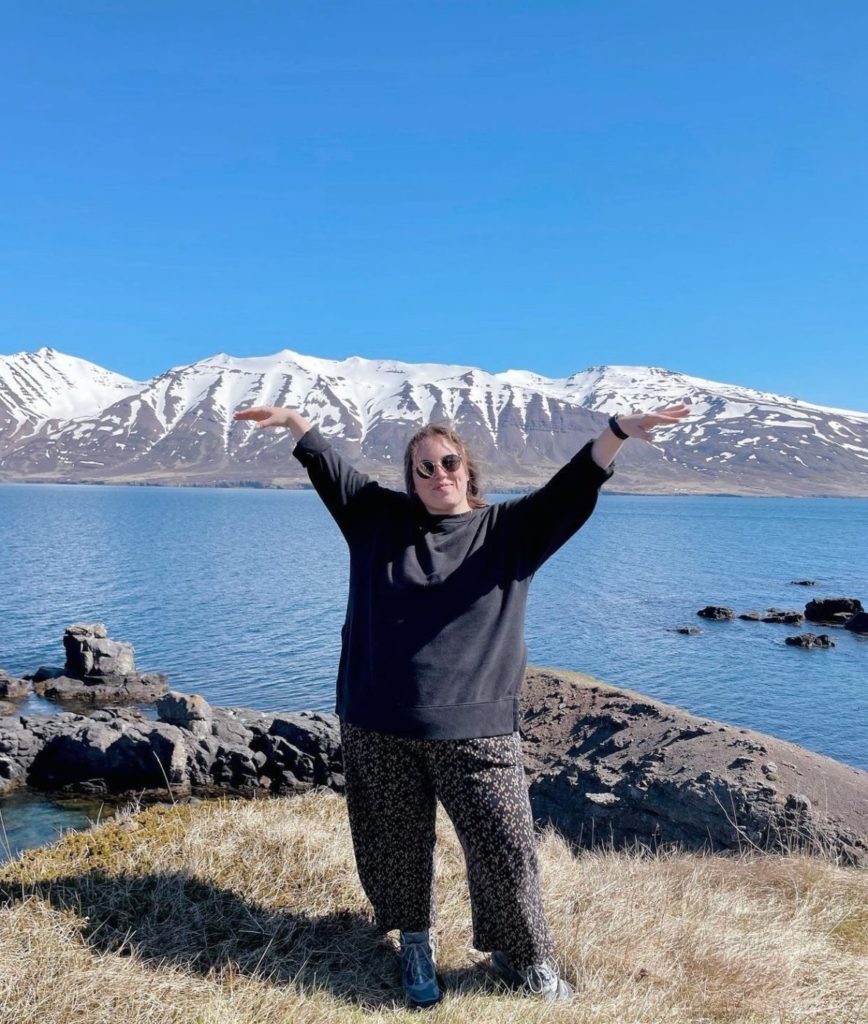
“In May, I was able to take my first adventure to the beautiful country of Iceland with Dr. Michelle Ritchie and my fellow research assistant, Kate Foral. This place was the epitome of glorious views, kind communities, never-ending adventures, and a heightened advancement for climate adaptations. Little did I know that heading into my research lab meeting on an ordinary Friday would I be leaving with purchased tickets to the trip of a lifetime. I am so grateful.
Throughout this trip, I gained experience conducting an international social science experiment in the field, with improved skills of interviewing, field notes, and an increase in understanding general quantitative data collection for a study. However, the biggest takeaway will continue to be the responsibility I have to continue aiding communities and improving health outcomes through the utilization and dedication of my knowledge in disaster management and climate change resiliency.”

